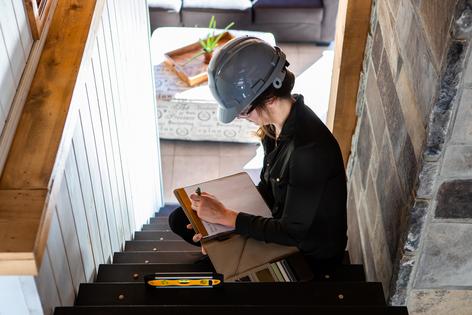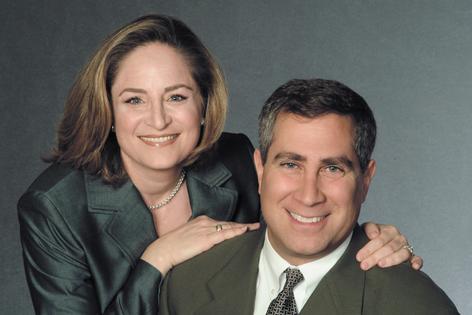Condo owner whose ceiling collapsed weighs in on building inspections
Q: I was given your article on building inspectors. The most important thing was not mentioned in your article! If you think something may be wrong, it probably is!
In 2011, an agent who works with the Veteran’s Administration (VA) found a foreclosed condo for me in Pleasant Prairie, Wisconsin. The VA inspected the home. We found small amounts of mold in the outside HVAC room. But, we moved forward with the deal.
After some time, I had issues with breathing and skin irritation. Later, the ceiling in my home came down due to inane building codes and poor local village inspections.
A: Thank you for your letter. In the article you mentioned, we told a buyer with breathing and health issues not to move forward with the purchase of a home after their home inspector noted moisture and dampness in the crawl space of the home she was interested in buying.
You mentioned that you purchased a condo in Wisconsin. We presume that you found the property using a real estate agent and obtained a Veterans Administration (VA) loan to purchase the home. When you applied for a VA loan, the lender sent out an inspector to evaluate the property from the lender’s perspective. The lender’s inspector does not usually spend the same amount of time looking at a property as a privately hired professional home inspector.
In fact, the VA inspector may be looking for different issues than a home inspector. A VA inspection may have extremely limited time and choose to focus more on whether your home has lead-based paint. A professional home inspector may cover that, but may have more time to spend on what else is going on with the property. The bottom line is that you can’t — and shouldn’t — rely on your lender’s inspection of the property. You should always hire your own inspector to scrutinize the property you want to buy.
We also recommend that you be present during the inspection. When you follow the inspector around the property, you see what the inspector sees. You can ask the inspector questions along the way and get a better understanding, not to mention a deeper sense of the underlying condition of the home.
As for your health issues and collapsed ceiling, we’re so sorry. It’s unfortunate these issues might be tied to your home. We don’t know if a privately hired home inspector would have found the source of your mold or air quality problems in your home. Some problems can’t be found, even by the best inspectors, while other problems jump out to most home inspectors.
Mold can be tricky. In some cases, evidence of mold may be of no consequence to a home buyer while it adversely affects the health of others. If you’re buying a home and suspect there may be mold, stop. Call in the experts to confirm whether there is a mold problem. If there is, you can ask the seller to remediate the problem or kill the deal.
In any event, when you buy a home, you should always conduct a home inspection. We hope that the home inspector you choose is a good one, with lots of experience and knowledge in the construction industry.
========
(Ilyce Glink is the author of “100 Questions Every First-Time Home Buyer Should Ask” (4th Edition). She is also the CEO of Best Money Moves, a financial wellness technology company. Samuel J. Tamkin is a Chicago-based real estate attorney. Contact Ilyce and Sam through her website, ThinkGlink.com.)
©2024 Ilyce R. Glink and Samuel J. Tamkin. Distributed by Tribune Content Agency, LLC.

































Comments